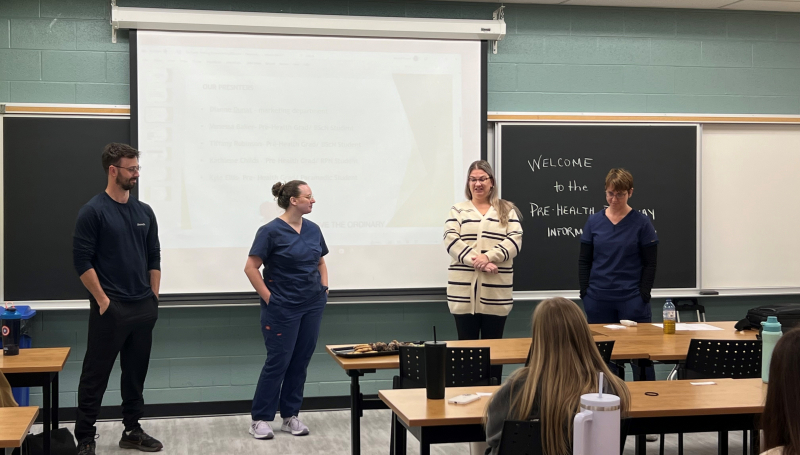Program Overview
This one year certificate is designed to give students the necessary skills and course requirements to apply to health science programs at both the Windsor and Chatham campuses in:
- Bachelor of Science Nursing (BScN)
- Cardiovascular Technology
- Dental Assisting Level I & II
- Dental Hygiene
- Diagnostic Medical Sonography
- Medical Laboratory Science
- Medical Laboratory Technician
- Occupational Therapist Assistant/Physiotherapist Assistant
- Paramedic
- Pharmacy Technician
- Practical Nursing
- Respiratory Therapy
- Veterinary Technician
Admission Requirements
OSSD with the majority of courses at the College (C), University (U), University/College (M) or Open (O) level qualify for admission to this program.
Mature students - See Admission Procedures for details.
Important Information
A number of St. Clair College programs have additional specific admission/selection criteria that must be achieved prior to acceptance. For details on program-specific admission/selection criteria, please see the appropriate program page on the web and contact the Registrar’s Office.
Applicants seeking admission to a health science program that requires certificate completion (Bachelor of Science Nursing, Diagnostic Medical Sonography, Respiratory Therapy, Medical Laboratory Science and Dental Hygiene) should register for the Fall intake of Pre-Health Sciences Pathway to Advanced Diplomas and Degrees. Students enrolled in the Pre-Health Sciences Pathway to Advanced Diplomas and Degrees program the who complete the certificate by May 1 of that calendar year will be given to students will be given first consideration for admission over students who complete the certificate after May 1 (January Intake) will only be considered for fall intake if space permits.
The Pre-Health Sciences Pathway to Advanced Diplomas and Degrees program provides successful graduates with consideration for admission to the Collaborative Bachelor of Science Nursing program with the University of Windsor, but does not qualify students for admission to other University of Windsor programs. To enquire about eligibility of the Pre-Health Sciences Pathway to Advanced Diplomas and Degrees program from St. Clair College for admission to a health science or nursing program at another institution, please contact the admissions office at that institution.
Courses
Please scroll to the bottom of the list to review the Pre/Co-Requisites.
The curriculum below is for incoming students:
Semester 2
| Code | Title | Credits |
|---|
*PHY 51 is not required for certificate completion. It is an additional course required for entry into Diagnostic Medical Sonography, Respiratory Therapy, Medical Laboratory Science and Cardiovascular Technology.
Program Physical Demands Analysis
Program Vocational Learning Outcomes
Pre-Health Sciences Pathway to Advanced Diplomas and Degrees (Ontario College Certificate) (41599)
The graduate has reliably demonstrated the ability to:
- Examine biological concepts, processes and systems of the human body, including genetics and epigenetics, as well as the structure, function and properties of the molecules of life, cells, tissues and organ systems in relation to homeostasis, physical development and health.
- Examine concepts, processes and systems of chemistry, including atomic and molecular structure; quantities in chemical reactions; solutions and solubility; acids and bases; as well as organic chemistry and biochemistry in relation to health and the human body.
- Solve numeric problems and interpret data related to health sciences and other science-related fields using mathematical concepts, including algebra and probability, along with descriptive and inferential statistics.
- Use health sciences and other science-related language and terminology appropriately to communicate clearly, concisely, and correctly in written, spoken, and visual forms.
- Prepare a personal strategy and plan for academic, career and professional development in the health sciences or other science-related fields.
- Investigate health sciences and science-related questions, problems and evidence using the scientific method.
Physics (Optional): - Examine fundamental physics laws and concepts and their application to health sciences and other science-related fields.





